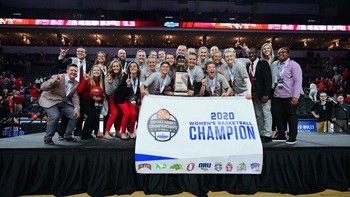Reading Recovery success a cornerstone for USD School of Education
The Reading Recovery Training Center, which is located at the Delzell Education Center at the University of South Dakota, is helping to change the lives of children as 3,200 students per year are getting the valuable help they need to beat illiteracy and conquer reading deficiencies. Since 1997, the USD Reading Recovery Training Center has impacted more than 62,000 children in 228 schools throughout 75 school districts in five states. Nationally, Reading Recovery has been a part of American schools since 1985 and is prevalent with training centers on 19 U.S. campuses.
“I have a deep respect for the entity of Reading Recovery,” said Garreth Zalud, Ph.D., director of the Reading Recovery Training Center at USD. “I have been in education for more than three decades and I don’t think there’s a better reading intervention program than this.”
Developed for first grade children considered “most-at-risk” and at the bottom 20 percent of their class in both reading and writing, Reading Recovery is an intensive intervention curriculum that lasts 12 to 20 weeks, depending on the student. The program begins with a test at the start of the series of lessons. Additional testing follows in the middle of the program, at the conclusion of the program and at the end of the school year. More importantly, Zalud says each lesson is carefully monitored and analyzed each day to determine the most important next teaching need.
“The lesson framework includes specialized techniques that are individually applied to each student, 30 minutes a day for five days a week,” he explained. “It’s less than 50 hours to change a kid’s life.”
Evidence points to significant issues for communities and school districts with high adult illiteracy. By working with students at a young age, they become better readers and writers, lessening the burden on schools as well as the community. “Kids that fail academically fail socially as well,” Zalud added. He says the benefits of students receiving one-on-one instruction as first graders are instrumental in helping them to become better readers.
“There’s always a group of kids who can’t respond to classroom or group instruction,” Zalud said. “This is why Reading Recovery is such an important program. We want to ensure that children are getting what they need to become readers.”
Zalud, who is also a professor of Curriculum and Instruction at USD, cites research and data that shows the effectiveness of Reading Recovery at making children better readers. Statistics indicate that the success rate of the program is astounding – eight of every 10 students who complete a full series of Reading Recovery lessons rejoin their classroom able to read within their class average.
“The high success rate of Reading Recovery is achieved through a combination of excellent training and ongoing professional development,” Zalud said. “Teachers are highly-trained on how to observe, record, analyze and respond to each child’s needs moment-to-moment and lesson-to-lesson. Every aspect of the program is very closely monitored.”
Ultimately, the best way to make schools better, Zalud explained, is to train teachers very, very well. Reading Recovery does just that. With support from a U.S. Department of Education Investing in Innovation (i3) Grant, the USD Reading Recovery Training Center provides training for Teacher Leaders and Teachers. Once trained, Teacher Leaders return to their school district and teach other teachers to become Reading Recovery teachers.
“Professional development for teachers is ongoing as long as you’re active in the field,” said Zalud, who noted that training requirements include attending professional development sessions designed to make sure teachers function in an efficient manner. “The success of Reading Recovery is dependent upon the skills of a teacher. It’s not the curriculum; it’s what you do with it.”
For more information about the Reading Recovery Training Center at the University of South Dakota, please visit www.usd.edu/education/reading-recovery/index.cfm or for more about Reading Recovery nationally, go to www.i3.readingrecovery.info.
A photo of Zalud is available for download at www.usd.edu/press/news/images/releases/Garreth_Zalud.jpg.


